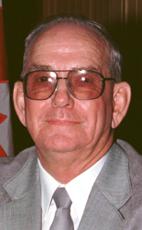Mr. Speaker, I rise for the first time in this House. I want to say that no bill will ever come before the House this session which is closer to my constituents than this bill.
I come from the Souris—Moose Mountain constituency where the farmers in 1960 wanted options. They were not satisfied with the marketing of grain. Although they were subjected to all kinds of opposition, phoney road bans, phoney literature being spread about it, the farmers said they want an option. They dug down deep into their pockets and built the Weyburn inland terminal. Today the city of Weyburn has the largest grain handling facility of any inland place in Canada because the farmers exercise an option.
Members opposite do not seem to realize that is what Reform is talking about. We are talking about an option.
If the wheat board does not look clearly into what our young farmers are saying, and I know this is true in Souris—Moose Mountain, if they are not given an option, then the wheat board, in its original purpose, the reason for which it was designed, will self-destruct. That self-destruction will not take too many years.
There is one thing of which members opposite ought to be cognizant. They brag about the 37% vote they got. The only difference between a third and a half is a sixth. That fraction is growing smaller and smaller all the time because of the bills they are putting before the House such as the bill which revises the wheat board.
They talk about democracy, with 10 of its members being voted in and 5 being elected. They say it is a Canadian bill. Is the creation of the Ontario Wheat Board not a Canadian bill? All of its members are elected. What is wrong with electing all of the members to this board?
As long as there is not accountability and open books, as long as there is not accountability in the way their statements are audited and produced, then that area of suspicion grows with every crop that comes off every farm. It is growing and government members had better understand why it is growing.
I alluded to the farmers in my constituency who have and will continue to put their money into their own grain handling facilities. If those farmers are given the option tomorrow, we will find out which option they will take. They will take the same option which they did in building their facilities. They will take that option. There is no doubt about it.
The member talked about getting permission from the Ontario Wheat Board to deliver grain across the border. Why is it that the people in the west cannot get permission to deliver their grain to the area of their choice? It is allowed in Ontario, but it cannot happen in western Canada. Government members will have to answer those questions.
The electorate of western Canada did answer. The greatest wheat growing province in Canada said “no way, we are going to elect eight Reformers all from the rural area”. There is the answer.
Those members say this is an Ottawa made bill for the bureaucracy that basically is in Ottawa, and therefore the bill is going to stay here. They know very well with the government members, five of them being appointed, all they have to do is take three members away from the 10 and they have the majority.
Democracy goes right out the window. All of those three members elected have to do is side with the government and the five who are appointed and the wishes of the farmers are gone.
Members know that and that is exactly why they did not have a totally elected board. That is exactly the reason. They are not fooling the farmers of western Canada. They are not being fooled one little bit.
If the farmers right now who are in dire straits, and there are a lot of them with the price of wheat, are given the opportunity, if they are listened to, they would say “Please, in our democratic society of Canada give us the choice. Don't legislate to us. We grow it, we store it but we don't own it. We don't sell it. We can't understand the operation because our selling agency is not even responsible to us”.
This is why, in my constituency, more and more agents every year are going out of wheat. Do members know why they are going out of wheat and barley production and the acreage is going down? Because they do not have a choice.
When they can get mustard, canola and soya, all of these commodities, that is where they are going. They contract it in the spring. They know what they are going to get and they got a choice. They have a choice with whom they even contract it to.
That is all we are asking, but those members want to keep this thing a dictatorial body governed not at arms' length from the government. The government is right in there and that is where the mistrust comes.
I know I can go to the people of my constituency, even those who support the wheat board, even those who openly say they want more control. They have said no, they are not going to get it with this mix-match. “We will give them 10 elected boys but we'll control them”.
They still see the board controlled by the government. That is exactly what the farmers do not want and that is not what the farmers on their survey of western Canada said.
I hope this bill gets a good airing in this House. I hope committee goes through it in detail because the major producers of western Canada deserve more of an option than what they have been given under this bill, for this is a billion dollar industry.

